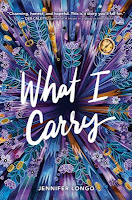For the past month or so, if you watch the news or have a social media account, you have most likely seen stories about politicians and parents getting all worked up over CRT (Critical Race Theory) being taught in our public schools. The stories are all over the place. In just the news from today: students were expelled from a private school because they pushed back on CRT, politicians and parents explain why CRT shouldn't be taught in public schools, and the teachers' union says it will defend teachers in CRT fights.
Truth be told, I felt like an idiot when all of the CRT controversy began. I teach 8th grade English in a public school and didn't know what CRT was. How could I not know what CRT was? Turns out, I shouldn't have known what CRT is, but now, I have some working knowledge of it. CRT is a legal analysis. Yes, my friends, a legal analysis. Please see the definition from Brittanica below.
Critical Race Theory: intellectual movement and loosely organized framework of legal analysis based on the premise that race is not a natural, biologically grounded feature of physically distinct subgroups of human beings but a socially constructed (culturally invented) category that is used to oppress and exploit people of colour. Critical race theorists hold that the law and legal institutions in the United States are inherently racist insofar as they function to create and maintain social, economic, and political inequalities between whites and nonwhites, especially African Americans (Brittanica.com)
I'm not a lawyer. I don't pretend to have any expertise in legal matters, but, I guess, I am indoctrinating my students by teaching CRT in my 8th grade English classroom. I guess most of America's public school teachers are indoctrinating their kids with CRT. The majority of America's public school teachers didn't even know what CRT was (or that we were teaching it) until some politicians told us we were. Who would have thought it?
Let me say it loud and clear: I am not teaching Critical Race Theory in my classroom. I am not teaching Critical Race Theory in my classroom. I am not teaching Critical Race Theory in my classroom. I am not teaching Critical Race Theory in my classroom.
I am teaching with race in mind, though, in my classroom, and when I say "with race in mind," I am purposefully seeking out and bringing different perspectives to my classroom. That's what I am supposed to do. I want my students to know about, comprehend, and learn from others' lived experiences. I don't understand how that is wrong. I truly don't. My mind cannot wrap itself around the idea that there are Americans who think teaching other perspectives and history is wrong and that teaching this somehow divides us and makes white people feel guilty.
When I learn about our past and present, I don't feel guilty. I love the learning. I wonder why I didn't know about a topic before this. I wonder how I can make a small difference in the lives of others. I wonder what else I can read to learn more. Learning makes me think. That's what I hope for my students - that learning makes them think and be curious to learn more.
This past spring, my 8th graders read Stamped: Racism, Antiracism, and You written by Jason Reynolds and Ibram X. Kendi. Although we didn't finish it (because of the weird school year we had), my students were fascinated. We learned about Climate Theory and Curse Theory in relation to race, the Mennonites, the Puritans, Harvard, Cotton Mather, the Salem Witch Trials, the paradox of Thomas Jefferson's ideas, Aristotle, Phillis Wheatley, the importance of the year 1619, and the Haitian Revolution. The list goes on. I didn't tell the kids what to think when they learned about this history. They thought for themselves, and they had some deep discussions with each other when they stopped to talk about this history. I trusted my students to think. We all need to trust our students be thoughtful, empathetic, and critical thinkers because they are when we allow them to be.
Now, we need to get adults to be the same thoughtful, empathetic, and critical thinkers we hope our children become. To do that, we must read. And read some more. And continue reading.
I challenge everyone who reads this blog of mine, whether adult, teen, or child, to find a book that sparks your curiosity about a topic. You can take a look at the books listed below in the links, or you can scroll through my previous posts to find a book which takes you out of your comfort zone. Please leave a comment if you find a book you plan on reading. Thank you!
Books and Resources to Help You Raise Anti-Racist Children
14 Antiracist Books for Kids and Teens Recommended by BIPOC Teachers and Librarians
An All Ages Reading List to Combat Anti-Asian Racism
10 Powerful Books for Adults, Teens, Kids to Celebrate and Understand Juneteenth
Lots of Great Reads - Kid to Adult
Diversity and Inclusion Resource Guide: DEI Read & Learn
Resources for Exploring Race, Racism, and Racial Identity: Books for Adults





No comments:
Post a Comment